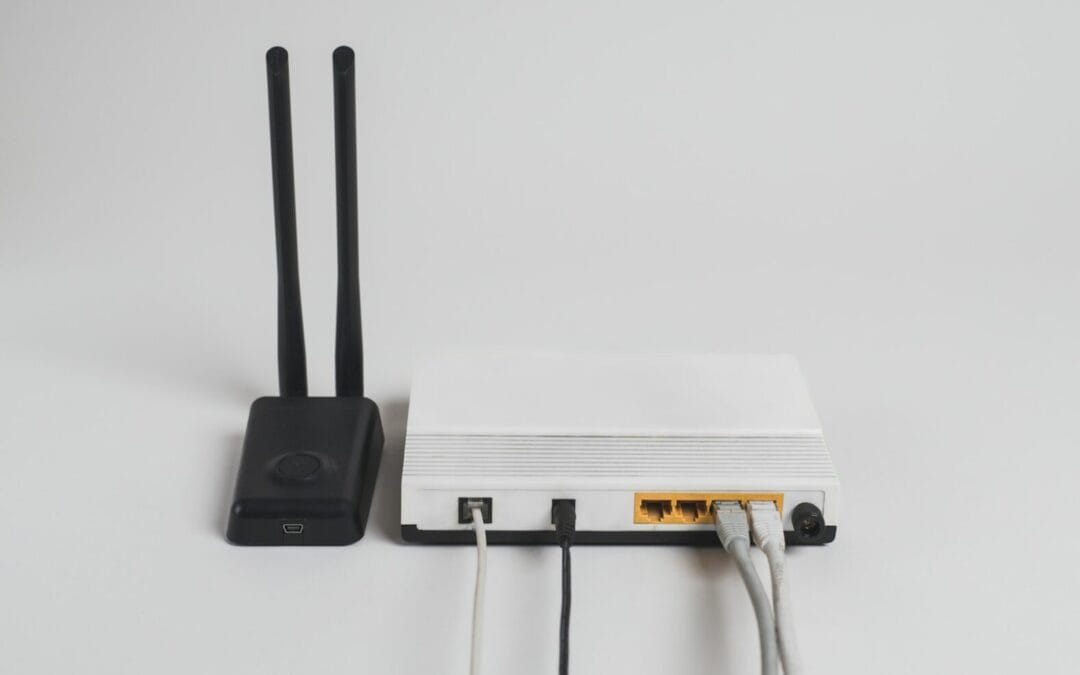Choosing the right network cable services can make a big difference in how well your business runs. Network cables connect all your devices, making sure they talk to each other smoothly. Whether it’s for computers, phones, or any other gadget, having the right cables keeps everything working together.
But how do you know which network cable services to choose? With so many options available, it can seem confusing. Some cables are better for long distances, while others are best for faster speeds. Picking the right ones helps your business stay connected and avoid problems.
Understanding the basics of network cables is the first step. You need to know what each type does and where it works best. After that, consider what your business needs. Do you need high-speed connections or something that works over long distances? Thinking about these factors helps you make the right choice.
Finding a good service provider is also important. They help you pick the best cables and set them up correctly. A good provider listens to what you need and makes sure everything works perfectly. Ready to get started? Let’s dive into the world of network cable services and make your business even better.
Understanding the Basics of Network Cables
Network cables are like the roads that carry data in and out of your devices. They connect computers, phones, and other gadgets to the internet and each other. There are different types of cables, each designed for specific tasks. Knowing the basics helps you pick the right ones for your business.
The most common type is Ethernet cables. These are used to connect computers to routers, printers, and other network devices. Ethernet cables come in different categories, like Cat5, Cat6, and Cat7. The higher the category, the faster and more reliable the connection. For example, Cat6 cables are faster and handle more data than Cat5 cables.
Another type of network cable is fiber optic. These cables use light to transmit data, making them super fast and great for long distances. Fiber optic cables are perfect for big offices or buildings where speed and reliability are crucial. They are more expensive than Ethernet cables but provide the best performance.
By understanding the basics of network cables, you can make better choices for your business. Pick the right type and category to ensure your devices work together smoothly and efficiently.
Key Factors to Consider When Choosing Network Cable Services
Choosing the right network cable services involves more than just picking a type of cable. You need to consider several key factors to get the best results for your business. Here are some important things to think about:
1. Speed Requirements: Think about how fast your network needs to be. If your business uses lots of data or has many devices connected at once, you’ll need faster cables. High-speed cables prevent slow connections and keep your operations running smoothly.
2. Distance Needs: Consider the distance between your devices. Ethernet cables work well for short to medium distances, while fiber optic cables are best for longer distances. Make sure you choose cables that can cover the areas you need without losing signal strength.
3. Installation Environment: Look at where the cables will be installed. Some cables can handle harsh conditions like heat, moisture, or electrical interference better than others. Pick cables that are suitable for your specific environment to avoid damage and ensure longevity.
4. Budget Constraints: Think about how much you’re willing to spend. While fiber optic cables provide the best performance, they are more expensive than Ethernet cables. Balance your needs with your budget to find the most cost-effective solution.
5. Future-Proofing: Consider your future needs. Choose cables that can handle growth and new technology. Investing in higher quality cables now can save you money and hassle later.
By considering these key factors, you can choose network cable services that best meet your business needs. This makes your network reliable, fast, and ready for whatever comes next.
Different Types of Network Cables and Their Uses
Network cables come in various types, each suited for specific uses. Knowing the differences helps you pick the right ones for your business needs. Here are some common types of network cables and where they work best:
1. Cat5 and Cat5e Ethernet Cables: These are basic Ethernet cables often used for home networks and small businesses. Cat5 handles speeds up to 100 Mbps, while Cat5e can reach up to 1 Gbps. They’re good for connecting computers, printers, and other devices within short distances.
2. Cat6 and Cat6a Ethernet Cables: These cables offer higher speeds and better performance than Cat5 cables. Cat6 can handle speeds up to 10 Gbps over shorter distances. Cat6a is an improved version that reduces interference and can maintain 10 Gbps over longer distances. They’re perfect for businesses that need fast and reliable connections.
3. Fiber Optic Cables: These cables use light to transmit data, making them super fast and efficient. They’re great for long distances and high-speed connections. Fiber optic cables are ideal for large offices, data centers, and places that need strong, stable connections.
4. Coaxial Cables: These cables are often used for cable TV and internet connections. They’re durable and can handle various weather conditions, making them perfect for outdoor use. Coaxial cables are suitable for businesses that need reliable connections in tough environments.
5. Shielded Twisted Pair (STP) and Unshielded Twisted Pair (UTP) Cables: STP cables have extra shielding to protect against interference, making them good for areas with lots of electrical noise. UTP cables are more common and work well in quieter environments. Both types are used for Ethernet connections.
By knowing the different types of network cables and their uses, you can choose the best ones for your business. This ensures your network runs smoothly and efficiently.
Steps to Find the Best Network Cable Service Provider
Finding the right network cable service provider is crucial for setting up a reliable and efficient network. Here are steps to help you find the best provider for your needs:
1. Research Providers: Start by looking up different network cable service providers. Read reviews and ask for recommendations from other businesses. Check their websites to see what services they offer and if they have any certifications.
2. Evaluate Experience: Choose a provider with experience in setting up networks similar to yours. An experienced provider will understand your needs better and offer solutions that work well for your business.
3. Check Services Offered: Ensure the provider offers the services you need. This includes the types of cables, installation, and ongoing support. A good provider should offer a range of options and be willing to customize their services to fit your needs.
4. Request Quotes: Contact several providers and ask for quotes. Compare prices and see what is included in each quote. Don’t just go for the cheapest option; consider the value you’re getting for your money.
5. Ask About Support: Find out what kind of support the provider offers after installation. Good support is essential for handling any issues that arise. Make sure they offer regular maintenance and quick response times for repairs.
6. Verify Credentials: Ensure the provider has the necessary licenses and certifications. This proves they meet industry standards and can be trusted to do a good job.
7. Read the Contract Carefully: Before signing, read the contract carefully. Make sure you understand all terms and conditions, including any hidden fees or long-term commitments.
By following these steps, you can find a network cable service provider that meets your needs. This will ensure that your network is set up correctly and runs smoothly.
Final Thoughts
Choosing the right network cable services is key to keeping your business connected and running smoothly. From understanding the basics of different cables to knowing what factors to consider, each step is important. By picking the right types of cables, such as Cat6 or fiber optic, you ensure fast and reliable connections.
Finding the right service provider is just as crucial. Look for experienced providers who offer quality services, good support, and fair prices. Doing your research and comparing options helps you make the best choice for your business.
Ready to improve your network? Contact ASCIO Wireless today for expert advice and top-notch network cable services. Let’s make your business better, one connection at a time.

